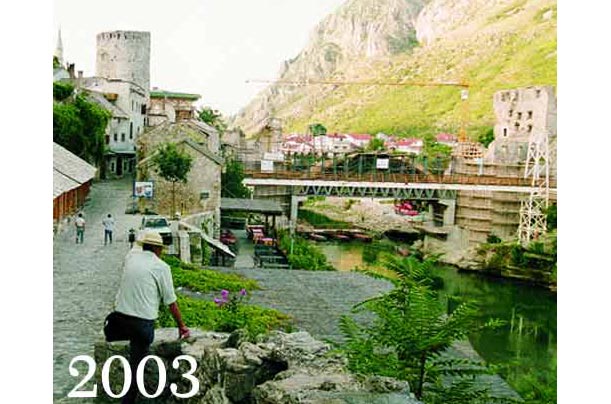
Mostar Bridge: While the Mostar Bridge is now being rebuilt, the communities it will connect still remains divided
At the height of the Bosnian war, the medieval town of Mostar was split along the Neretva River between Croat and Muslim communities. Serbs had withdrawn from the area the year before. For nine months, the two sides exchanged small-arms and artillery fire. Anxious to protect their majestic 16th century bridge — built under the Ottoman reign of Suleiman the Magnificent — Muslim residents hung blankets, tires and plastic sheeting from an iron fence along the main span as a kind of shield from snipers. But on Nov. 9, 1993, a Bosnian Croat tank positioned near one bank blew several holes in the white stone arch. The structure collapsed and plunged into the water below. The Bosnian Croat commander who ordered the shelling, Slobodan Praljak, later said that the bridge was worth not even the finger on a Croat soldier’s hand. The bridge, from which Mostar takes its name, is now being rebuilt by Turkish contractors with more than $15.5 million in international aid, including some from the Croatian government. The communities remain divided.